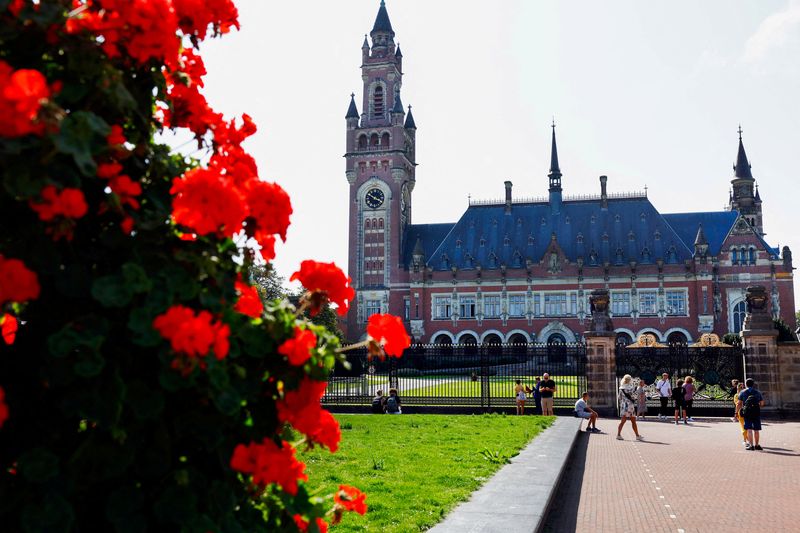Venezuela tells World Court referendum to go ahead despite Guyana resistance
2023.11.15 08:50

© Reuters. FILE PHOTO: A general view of the International Court of Justice (ICJ) in The Hague, Netherlands August 22, 2023. REUTERS/Piroschka van de Wouw/File Photo
THE HAGUE (Reuters) – Venezuela told the World Court on Wednesday that it will go ahead with a referendum on Dec. 3 over its rights to a potentially oil-rich territory that is the subject of a border dispute with Guyana, which asked the court to halt the vote.
In April the International Court of Justice, as the World Court is formally known, ruled that it had jurisdiction over the issue. But a final ruling on the main case could be years away.
The referendum asks Venezuelans among other things if they agree with Caracas’ position to reject the ICJ’s jurisdiction over the Esequiba region and agree to a plan to incorporate it and create a state called Guayana Esequiba. It would also grant its population Venezuelan citizenship.
Guyana on Tuesday asked the court to issue emergency measures to stop the vote. Venezuela said that demand interfered with its internal affairs and constitutional order.
“Nothing will prevent the referendum scheduled for the Dec. 3 from being held,” Venezuela’s Vice President Delcy Rodriguez told the court.
She added that her appearance in court did not mean she recognized its jurisdiction over the dispute.
The 160,000 square km (61,776 square mile) territory of Esequiba is mostly impenetrable jungle and has long been the subject of a border dispute between the two neighbours.
Venezuela’s claim over Esequiba was reactivated in recent years after the discovery of oil and gas near the maritime border. Just last month Guyana announced another significant discovery in offshore areas.
The Venezuela referendum has been described by critics as a way for the ruling party to test its support ahead of planned elections next year and to encourage the international courts to give it full rights over the disputed border territory.
No date has been set for a ruling but the ICJ usually issues a decision on emergency measures within a few weeks.
The ICJ is the United Nations highest court for disputes between states. Its rulings are final but it has no way of enforcing its decisions.








